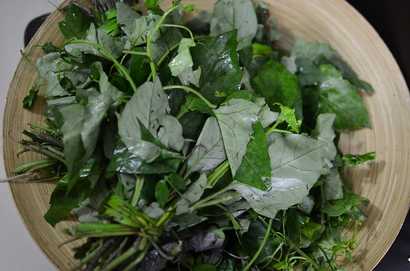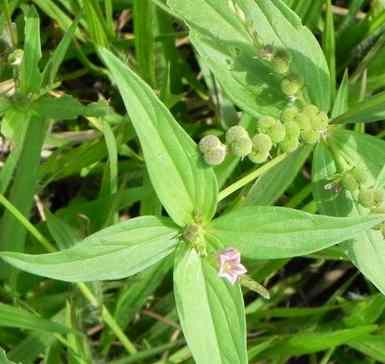
support@yorubalibrary.com
+2348073529208, 07038599574

Efo Wọrọwọ, commonly called Wọrọwọ vegetable in Yoruba, is a highly nutritious leafy vegetable widely eaten in Yoruba land. Its botanical name is Solanecio biafrae. It is a creeping vegetable with tender green leaves often grown on fences or sticks for support.
Among Yoruba people, Efo Wọrọwọ is cherished for its ability to build blood, improve strength, and cleanse the body naturally. It is also used in herbal medicine for treating different ailments. Apart from its health value, some Yoruba traditionalists believe it has mild spiritual benefits for peace and protection.
This edible leaf is commonly added to soups and stews because of its slimy texture, which makes food thicker and tastier.
Key Facts
Category: Leaf
Botanical Name: Solanecio Biafrae
Common Name: Nil
Yoruba name: Efo Wọrọwọ
Igbo Name: Nil
Hausa Name: Nil
Health Benefits
1. Improves Blood and Treats Anemia
Efo Wọrọwọ (Solanecio biafrae) is rich in iron and vitamins, making it perfect for people suffering from low blood levels. Yoruba women often eat Wọrọwọ soup after childbirth to rebuild lost blood and regain strength.
2. Strengthens Weak Patients and Boosts Energy
Its high nutrient and water content help restore energy in sick or weak individuals. Farmers and hardworking people eat Wọrọwọ vegetable soup to maintain strength.
3. Cleanses the Stomach and Aids Digestion
The slimy nature of Wọrọwọ acts as a natural cleanser, helping to remove harmful waste from the stomach and improving digestion.
4. Controls High Blood Pressure
Regular consumption of Wọrọwọ is believed to help lower high blood pressure naturally because it relaxes the body and supports proper blood flow.
5. Fights Malaria and Fever
Some Yoruba families boil Wọrọwọ leaves as a mild herbal tea for malaria and fever relief.
6. Strengthens Bones and Improves Eye Health
Wọrọwọ is rich in calcium for strong bones and vitamin A, which supports healthy eyesight.
7. Promotes Healthy Skin and Anti-Aging
Its vitamins and antioxidants help maintain glowing skin and slow down aging effects when eaten regularly.
Want to treat common ailments such as Malaria, Cough, Measles, Typhoid, Pile etc naturally without spending much? Grab a copy of Authentic Herbal Solutions: 15 Common Ailments & Their Natural Cures. A practical eBook recommended for everyone regardless of tribe, religion or association. Order below or Download sample here
AUTHENTIC HERBAL SOLUTION #4KOne Yoruba proverb says "Bí olóde ò kú, òde rè kì í wu Gbégi". Do you know that Gbégi is actually a leaf/plant? Get Yoruba Proverbs on Plants and Herbs, which is a collection of Untold Wisdoms Hidden in Leaf and plants comprising their Life Applications & Moral Teachings. Order below or download sample here
YORUBA PROVERBS ON PLANTS #4KSpiritual Use
1. Peace and Calmness in the Home
Cooking and sharing Wọrọwọ soup in Yoruba belief is sometimes seen as a way to invite peace and calmness into the home.
2. Mild Cleansing and Removing Bad Energy
Wọrọwọ leaves can be soaked in water and used for a mild herbal bath to remove bad energy or spiritual heaviness.
3. Attracting Goodwill and Positive Relationships
Some traditionalists use Wọrọwọ in small family rituals meant to strengthen love and unity among family members.
Characteristics
⦁ Physical Appearance –
Efo Wọrọwọ has broad, smooth, and shiny green leaves with a creeping stem that climbs on sticks or fences.
⦁ Taste and Texture –
It has a slimy texture when cooked, which thickens soups, and a mildly sweet herbal taste.
⦁ Growth Pattern –
Commonly grown in backyard gardens and farms, usually supported with sticks or fences for climbing.
Functions
⦁ Nutritional Food –
Cooked as a vegetable soup or added to stews for blood building and general health.
⦁ Traditional Medicine –
Used for treating fever, boosting strength, and cleansing the stomach.
⦁ Spiritual Uses –
Peace-attracting rituals, mild cleansing, and improving family harmony.
Conclusion
Efo Wọrọwọ, also known as Solanecio biafrae, is a highly valued Yoruba vegetable for its nutritional, medicinal, and mild spiritual importance. Its ability to improve blood, restore energy, and cleanse the body makes it a regular vegetable in Yoruba kitchens.
Have you heard of our Yoruba Herb Dictionary? This contains names of Yoruba Leaf, Roots, Barks, Characteristics, Properties & Identification with HD Pictures. Order below or download sample here
A-Z HERBS & LEAF DICTIONARY #4K
Know more about the Yoruba traditional uses and he…

Learn about Ewe Aran, a potent Yoruba medicinal le…